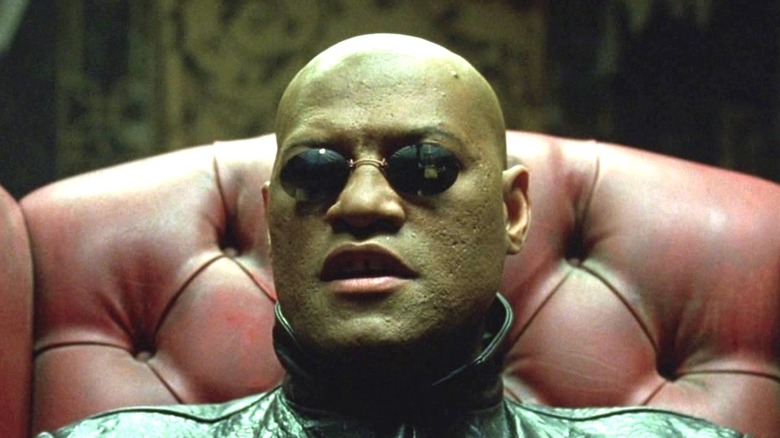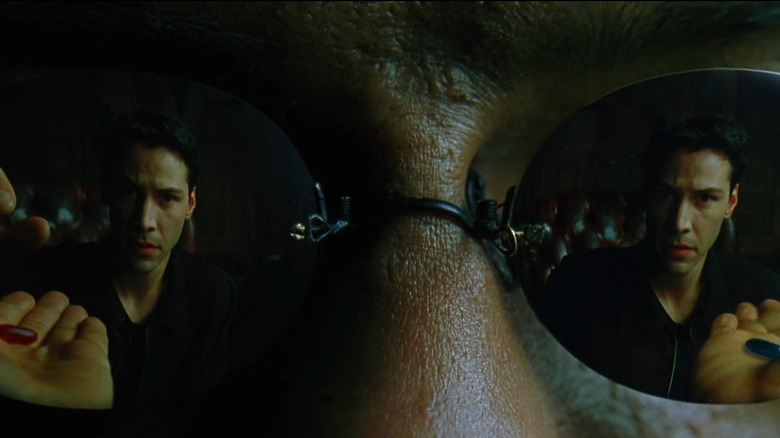Why Morpheus's Name Means More Than You Think In The Matrix
"The Matrix" is arguably one of the densest films ever made. On the surface, it may come across as a sci-fi adventure movie with characters waxing philosophical frequently. Still, as you begin to go down the rabbit hole, you'll find references and symbolism aplenty. But what's astonishing about the film is that it manages to deliver clear messages about breaking through ideas you think about the world around you and supplies them in an entertaining package.
On a surface level, "The Matrix" predicted the now-common theory that humanity as we know it exists in a complex simulation. On a much deeper level, the movie is a commentary on real-world political, religious, and economic systems with people believing the world they live in is the only one that could possibly exist. If people are willing to peer through the looking glass, they may discover an even better and entirely new system.
That's not even getting into the significance of the names. "Neo" (Keanu Reeves) is an anagram for "One." Next, you have "Trinity" (Carrie-Anne Moss), which refers to the Holy Trinity consisting of the Father, Son, and Holy Spirit. It's an apt metaphor seeing how she's the one who raises Neo from the dead at the end of the film. And then, of course, there's Morpheus (Laurence Fishburne).
The name 'Morpheus' comes from the Greek god of sleep
To understand the significance of the name "Morpheus," it's critical to go back to Greek mythology. If you paid attention in your high school English classes, you might remember that Morpheus is the name of the Greek god of sleep. And in fact, he lives in a dream world with his family, but he plays a significant role concerning the other gods. He's a messenger, able to travel into the dreams of regular mortals to deliver divine wisdom from the gods.
If that sounds familiar, it's because that's precisely the role Morpheus occupies in "The Matrix." Neo begins in the simulated world, and it's up to Morpheus and his compatriots to send messages to him to prime him for his awakening. After all, Morpheus is the one who contacts Neo via phone when he's in the office, telling him to avoid the agents on his tail.
That's not all. Much of Morpheus's dialogue centers around words like "dream," "sleep," and "awake." When he offers Neo the red and blue pills, he states that he'd "wake up" in his bed if he were to take the blue pill. Another famous quote from Morpheus goes, "Have you ever had a dream, Neo, that you were so sure was real? What if you were unable to wake from that dream? How would you know the difference between the dream world and the real world?"
Morpheus often refers to the Matrix as a dream instead of a collection of wires and binary code. It signifies how he isn't merely moving Neo from one location to the next. He's transporting him to another world, one where the laws of physics literally change.

